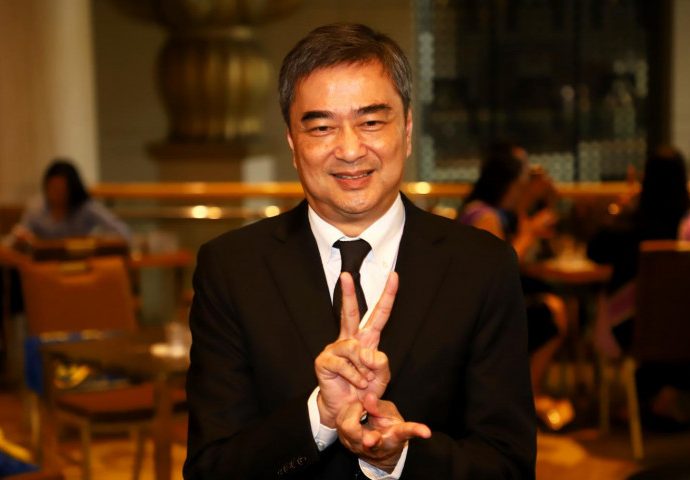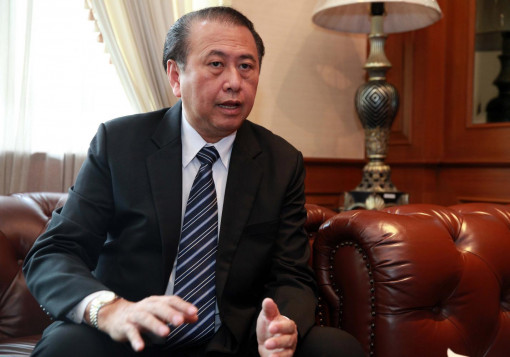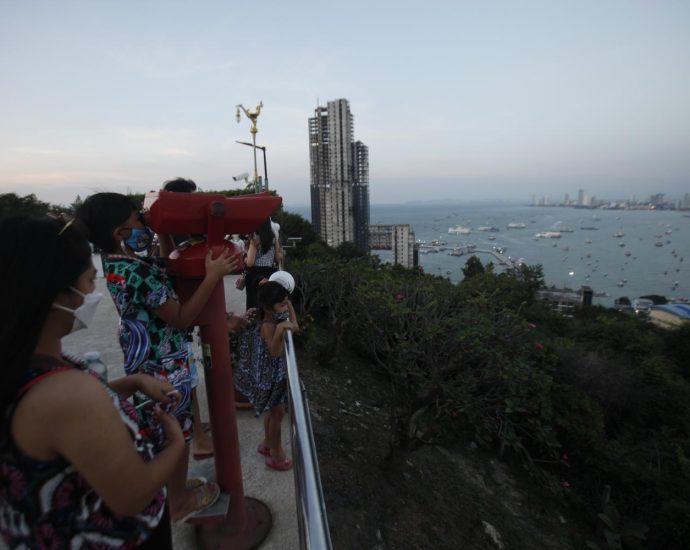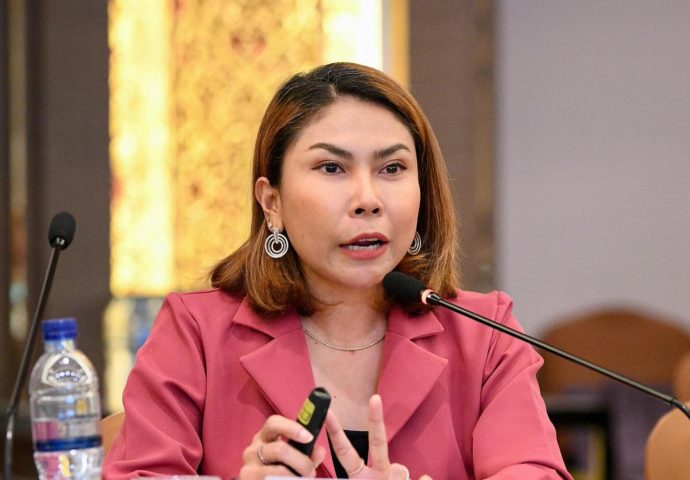Commentary: Fascinated by polyglots who speak many languages? That could be you

There are countless examples of children growing up multilingual, such as with the One Parent One Language method where each parent speaks exclusively in one language to the child. By associating one language with a particular person or function, our brain can be trained to know exactly when and where each language is to be used.
EXPOSURE TO THE SPOKEN LANGUAGE IS KEY
While many popular polyglot influencers seem to be self-taught, we cannot expect to achieve fluency by simply relying on lessons, books, and apps.
Though these are useful tools to help explain grammar, vocabulary, and other theoretical aspects, we need to be immersed in the spoken language as much as possible to foster speaking proficiency, according to linguistic expert Stephen Krashen.
Opportunities for this include conversing with native speakers, watching movies or shows in the target language, and simply letting the spoken language play in the background. It increases our chances of encountering frequently used words and phrases, and the better we can absorb and replicate the natural rhythm, intonation, and informal expressions.
Jonas Fine Tan, for instance, learnt Thai not just from textbooks but by interacting with native speakers, hanging out at a Thai restaurant near his mother’s workplace over the years. Such real-world practice can help not only to improve speaking proficiency but also to understand the nuances, colloquialisms, and cultural contexts over a detached set of grammar rules and vocabulary.
Daggers out in the Democrat Party
Old versus new guard rift yet to heal, writes Nattaya Chetchotiros

The Democrat Party is still searching for its new leader after two failed attempts over the past two months.
The prospects of former leader Abhisit Vejjajiva returning to the same role is not bright as he is being challenged by a new faction led by Chalermchai Sri-on, acting party secretary-general, and Det-it Khaothong, acting deputy leader, which has a large group of MPs under its wing.
A party source told the Bangkok Post that after the party failed to elect a new executive board and leader twice due to a lack of quorum on July 9 and Aug 6, Mr Chalermchai was unhappy and pointed the finger at the old camp led by Mr Abhisit and another former leader Chuan Leekpai.
At the time, the party, which has 25 MPs, was being touted as a possible partner in the new Pheu Thai-led coalition, even though it had not yet reached a formal resolution on the matter.
But Mr Chalermchai informed Pheu Thai that while his 21 MPs would vote for PT’s prime ministerial candidate, Mr Abhisit was against joining PT in government on the ground the two parties had been fierce rivals for years, the source said.
Mr Abhisit is seeking the party leadership again and does not mind if the Democrats end up in the opposition as he and his camp believe that performing in that role would help restore the party’s dignity and popularity, the source said.
The Democrats may now miss out on the opportunity to join the Pheu Thai-led coalition as PT appears set to gather enough support from other parties to ensure a House majority.
According to another source, Pheu Thai has now sealed a deal with the Palang Pracharath Party (PPRP) in which the PPRP has agreed to vote for Srettha Thavisin, Pheu Thai’s prime ministerial candidate, in exchange for slices of the cabinet quota cake.
However, the United Thai Nation (UTN) Party has not yet confirmed whether it will join the coalition. If the UTN also agrees to join, the Pheu Thai-led coalition will boast 315 MPs, the source said.
But the group of 21 MPs led by Mr Chalermchai has not given up hope, and promises to back Mr Srettha in the next prime ministerial vote in parliament expected on Aug 22.
They hope that when a cabinet reshuffle takes place some time after the formation of a new government, they will be brought into the coalition, a source said.
In light of this, they must seize control of executive power within the party to achieve that aim.
The old camp under Mr Abhisit initially believed that if the Democrat Party failed to join the Pheu Thai-led coalition, this would help boost Mr Abhisit’s chances in the leadership race.
But that is not the case because the new camp led by Mr Chalermchai has 21 out of a total 25 MPs and a vote by an MP has more weight than that of a non-MP party member at a ratio of 70 to 30, the source said.
That means the new camp will always win in a vote on any issues and it opposes a proposal to scrap the voting method based on unequal weighting.
In response, the old camp had to resort to tactics to force party meetings to collapse due to a lack of quorum, the source said.
“The two sides point the finger at each other. The new camp sees Mr Abhisit as a source of problems.
“After the Democrats joined the Prayut Chan-o-cha government following the 2019 election, Mr Abhisit resigned as leader to keep his promise that he would quit if the Democrats backed Gen Prayut as prime minister.
“This time, the group thinks Mr Abhisit still has a problem with Pheu Thai and the red-shirt supporters do not like him,” the source said.
Meanwhile, the old group has criticised Mr Chalermchai for failing to gain recognition from party supporters and the public.
“The rift between them runs so deep. If the new camp can seize power within the party and becomes part of the coalition government, it will take aim at the old camp which it sees as an obstacle,” the source said.
Even if Mr Abhisit is re-elected as party leader, he will find it difficult to work with the 21 MPs under Mr Chalermchai as these MPs are newcomers and do not share the same mindset, the source said.
Phichai Ratnatilaka Na Bhuket, programme director for politics and development strategy at the National Institute of Development Administration, told the Bangkok Post that Mr Abhisit would have to work hard to restore the party’s popularity if elected as leader.
The outcome of the May 14 election showed the party’s support base has shrunk considerably as it lost several million votes compared to previous elections, Mr Phichai said.
So, the party must try to woo support from those who voted for the UTN because by the next election, Prime Minister Prayut Chan-o-cha will have quit politics and the party is likely to fade away.
“But the problem is that many supporters of the UTN are conservatives while Mr Abhisit is a liberal-minded person. Whether he can woo their support remains to be seen. Moreover, Mr Abhisit is not an MP so it is not easy for him to handle those MPs who do not belong to his camp,” Mr Phichai said.
1 dead in boat incident

PUBLISHED : 14 Aug 2023 at 04:30
PHETCHABURI: One tourist drowned and another remains missing after a tour boat was hit by a waterspout and sank in the middle of Bang Ta Boon Bay off Ban Laem district on Saturday afternoon.
The incident involving a cloud phenomenon that looks like a small tornado, complete with spiralling funnel, was reported to the 191 police emergency centre about 5pm.
Sampan Jinping, 63, the boat operator, said he was hired by a group of seven tourists to cruise along Bang Ta Boon Bay for sightseeing.
While the boat was heading back to the shore, about 2 kilometres from the mainland, a waterspout suddenly stuck the boat. The vessel sank and the seven passengers were swept into the water by the impact.
None of the tourists were wearing life jackets, he said.
He and a rescue unit from the Sawang Sanphet Thammasatan Foundation managed to pluck five of the group to safety but not their two friends.
At 10am yesterday, the body of Chanin Chompinthong, 25 was found 50km from the shore while Kritsanat Kampanya, 27, is still missing. The search for Mr Kritsanat continues.
Doubt over PM candidate
Srettha urged to first address parliament
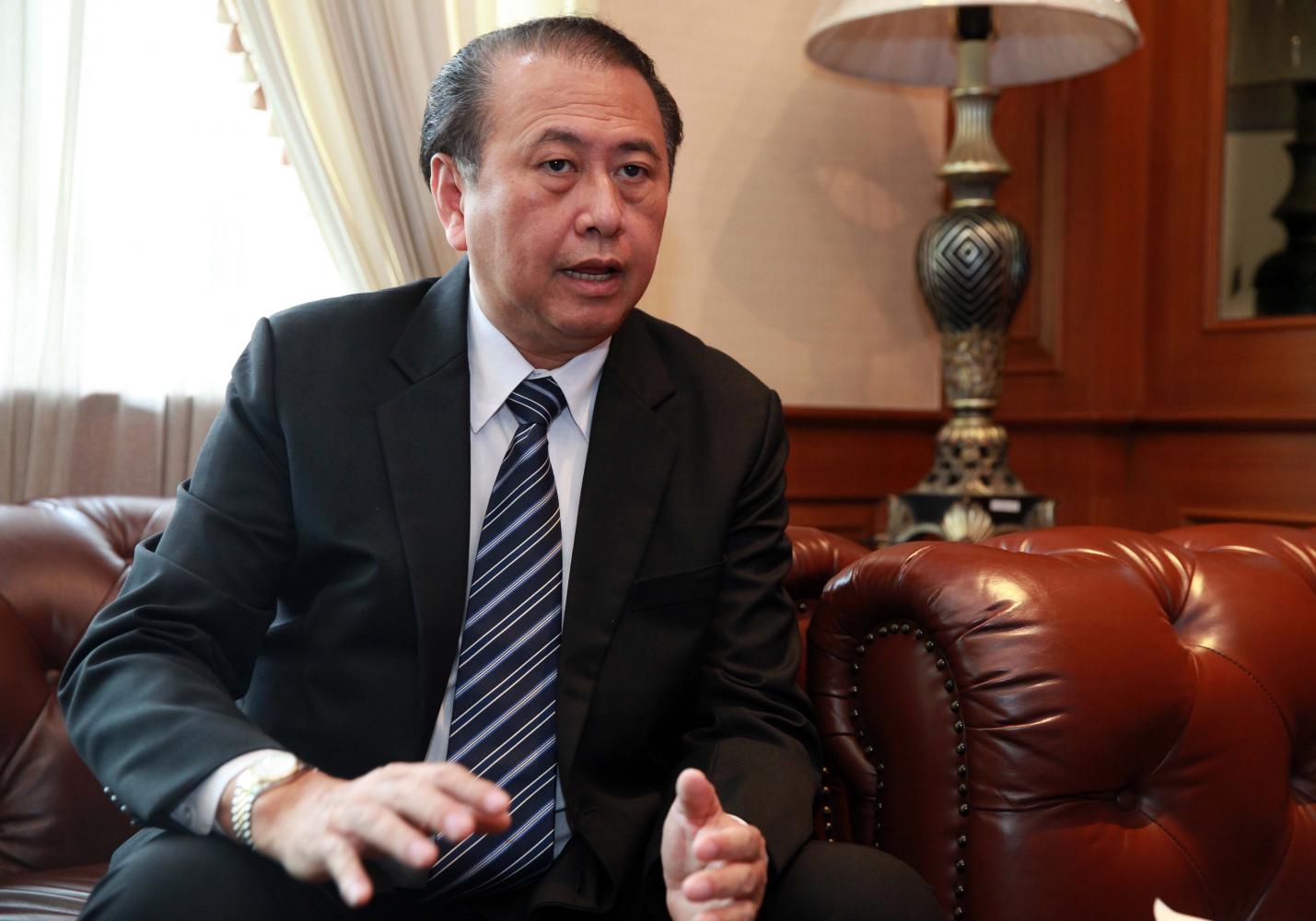
Senators are still divided over whether to back Srettha Thavisin, a Pheu Thai Party prime ministerial candidate, in the next PM vote in parliament.
Sen Seree Suwanpanont said the 250 senators must check the qualifications of the candidate as well as ask how Pheu Thai’s election pledges, such as the 10,000-baht “digital money” giveaway, will be funded.
“The senators want to hear Srettha explain in parliament before the vote,” Sen Seree said.
Responding to Sen Wanchai Sornsiri, who claimed that more than 90% of senators would vote for Mr Srettha, Sen Seree said it was not clear whether the majority of senators would do so.
“Things can change before the vote,” Sen Seree said. “If a prime ministerial candidate fails to meet the qualifications stipulated by the constitution, the nomination may be pulled out.
“I speak in general, not referring to Mr Srettha in particular,” he said.
Asked whether the next PM vote will be held on Aug 22, Mr Seree said it is up to Parliament President Wan Muhamad Noor Matha to set the date.
After the Constitutional Court decides on Wednesday whether to accept a petition seeking a ruling on whether parliament’s rejection of the renomination of Move Forward Party (MFP) leader Pita Limjaroenrat as prime minister is constitutional, the vote could be held on Aug 21 or 22, Sen Seree said.
Sen Kittisak Rattanawaraha echoed that view, saying he does not think 90% of senators will back Mr Srettha as claimed by Sen Wanchai.
“There are several days and anything can happen before the vote,” Sen Kittisak said.
Asked to comment about a group of 40 MPs from the Palang Pracharath Party (PPRP) who earlier said they would vote for Pheu Thai’s candidate, Sen Kittisak said the two parties have not yet announced a formal agreement to work together.

Wanchai: Support not about PPRP
“But this could be seen as a signal of bargaining for what they want,” Sen Kittisak said. “If they don’t get what they ask for, Pheu Thai may not receive enough support.
“It looks like they are trying pressure Pheu Thai into relying heavily on Gen Prawit Wongsuwon [the PPRP leader] because Pheu Thai can no longer turn to the Move Forward Party,” he added.
“Right now, those who have the upper hand are Gen Prawit and Bhumjaithai leader Anutin Charnvirakul,” he said. “If either or both of them pull out, the Pheu Thai-led coalition will collapse.
“If Gen Prawit is not part of the government, the senators who are close to him will not vote for Mr Srettha,” he said.
According to a source, Pheu Thai has sealed a deal with the PPRP, and the PPRP has agreed to vote for Mr Srettha in exchange for slices of the cabinet quota.
However, the United Thai Nation Party (UTN) has not yet confirmed whether it will join the Pheu Thai coalition, the source said. If the UTN agrees to join, the Pheu Thai-led coalition will boast 315 MPs, the source added.
Pheu Thai has 141 MPs while Bhumjaithai has 71 MPs, the PPRP 40, the UTN 36, Chartthaipattana 10, Prachachat nine, Pheu Thai Ruam Palang two, Chartpattanakla two, with Seri Ruam Thai Party, Plung Sungkom Mai, Thongthee Thai and the New Democracy Party all having one MP each.
Sen Wanchai wrote on Facebook yesterday that: “Ninety percent of senators will throw their full support behind Mr Srettha in the next prime ministerial vote” because Pheu Thai can gather enough backing from other parties to ensure a House majority.
He wrote that supporting Pheu Thai’s PM candidate has nothing to do with the PPRP’s prospects of joining a Pheu Thai-led coalition.
Most senators would support Pheu Thai and its PM candidate because it had broken away from the MFP, whose policy was to amend Section 112 of the Criminal Code, or the lese majeste law, a move opposed by many senators, he wrote.
“When Pheu Thai shows that it can gather enough support, the senators are ready to vote for its prime ministerial candidate, regardless of whether the PPRP and the UTN are part of the Pheu Thai-led coalition,” Sen Wanchai wrote on his Facebook page.
Abhisit top pick for Dems chief, poll says

PUBLISHED : 14 Aug 2023 at 04:30
Results of a Nida Poll survey show most respondents back the Democrat Party re-electing former prime minister Abhisit Vejjajiva as its leader.
The National Institute of Development Administration (Nida) poll interviewed 1,310 people from Aug 9–10 on who should be the next Democrat Party leader after the resignation of Jurin Laksanawisit.
Asked who they thought was suitable, 37.4% chose Mr Abhisit, who was party leader from March 2005 to March 2019; followed by Chuan Leekpai (24.4%), who stepped down from the party leadership position in 2003; Suchatvee Suwansawat (9.8%), who was the party’s Bangkok governor candidate; Watanya Bunnag, better known as Madam Dear (4.2%); and Mr Jurin (3.05%).
When asked if the party should join a new government led by the Pheu Thai Party, 44.9% disagreed, 16.1% totally disagreed, while 19.5% agreed and 18.7% totally agreed.
Of the 1,310 participants, 58.6% said they had never voted for the Democrat Party in past elections; 31.9% said they had, but not in the May 14, 2023, poll; 9.3% said they had, including in the recent election; and 0.15% said they had never exercised their right to vote.
The Democrat Party was founded in April 1946 and is the country’s oldest political party.
Mr Jurin resigned as leader on May 15 after the party’s poor showing in the May 14 election, where it won only 25 House seats, about half of the number it obtained in 2019. His resignation prompted an election for the new party leader and new executive committee, matters which are still unresolved after two failed attempts.
Pattaya budget to spur tourism, spending
PUBLISHED : 14 Aug 2023 at 04:30

Pattaya City has prioritised next year’s budget spending on stimulating tourism and the local economy, said Pattaya City mayor Paramet Ngampichet.
The city has approved a budget worth 1.9 billion baht and Pattaya City executives, councillors and local government agencies met recently to set spending priorities.
The budget will kick in on Oct 1, the beginning of the next fiscal year.
Mr Poramet said 1.6 billion baht of the total is earmarked for fixed expenses such as utility bills and salaries. The rest is left for investment and development projects.
Next year’s budget will mainly go on restoring the pandemic-battered tourism sector and helping spur the local economy, according to the city mayor.
Tourism promotions, which such as the fireworks festival and Pattaya marathon, will be expanded with a jazz festival to attract more high-spending visitors.
The city will also undertake basic infrastructure projects to heighten its tourism appeal as a major destination serving the Eastern Economic Corridor (EEC).
Mr Poramet, meanwhile, said the Pattaya City council has approved a budget of 336 million baht to resume long-delayed construction of the 20,000-seat National Eastern Sporting Stadium project.
The stadium project, which has suffered a 15-year delay, was halted as it was entering the second phase of construction. Bidding has opened to find a builder for the third phase.
The third phase will last up to 820 days. After that, a further budget will be sought.
He added if the stadium were to cater to world-class competitions, it would also need a separate practice field. Mr Poramet said he was confident the stadium project would be up and running during his tenure.
The National Anti-Corruption Commission has inspected the project located on a 371 rai land in tambon Huai Yai of Bang Lamung district in Chon Buri. Work started in 2008 and should have been completed by 2017.
However, work has been abandoned by previous contractors. Pattaya City said several factors caused the delay, including the discovery of large boulders underground which forced a suspension to drilling work.
In 2020, the project experienced yet another setback amid a labour shortage triggered by the Covid-19 pandemic. The contractor left the job unfinished despite having been paid 143 million baht.
The Pattaya City confiscated the firm’s guarantee worth 50 million baht placed as a condition for taking on the work. It is now suing the firm to reclaim the rest of the fund.
Free trial starts on Pink Line

PUBLISHED : 14 Aug 2023 at 04:30
The Pink Line will start its trial run tomorrow, with free rides to be offered to passengers in September and October, said a source from the Mass Rapid Transit Authority of Thailand (MRTA).
The trial run is set to begin after the Northern Bangkok Monorail (NBM), which was granted the concession to operate the line, finished its systems test run from the depot station to the Nonthaburi government complex station. The entire line covers 30 stations.
The Pink Line will offer free rides for the next two months before opening as a commercial service in November. The opening comes earlier than planned, the source said.
Construction of the MRTA’s Pink Line, linking Khae Rai Station at one end to Min Buri Station on the other, has been underway since 2016, with the government helping the MRTA with the land appropriation.
The 34.5-kilometre-long straddle monorail line starts at Nonthaburi Civic Centre Station, which is connected to the MRT Purple Line, and ends at Min Buri Station, which will be connected with the Orange Line that is currently under construction.
Meanwhile, also starting tomorrow, services along the State Railway of Thailand’s (SRT) Red Line will begin earlier, with the first trains leaving the depot at 5am instead of 5.30am, said Suthep Punthupeng, CEO of SRT Electrified Train Co.
The decision was taken in light of growing ridership, as well as to help early morning travellers get to and from Don Mueang airport, he said.
SRT has also reduced the service headway along the Red Line, with trains now scheduled to arrive every 10 minutes between 7am-9.30am and 5pm-7.30pm on the section between Krung Thep Aphiwat Central Terminal and Rangsit.
Trains will arrive every 15 minutes outside rush hour, he said.
On the section between Krung Thep Aphiwat Central Terminal and Taling Chan, also known as the Light Red Line, trains will still arrive every 20 minutes, according to Mr Suthep.
Foreigner ‘fell’ from 7th floor

PUBLISHED : 14 Aug 2023 at 04:30
NEWSPAPER SECTION: News
CHON BURI: A 32-year-old Russian woman fell to her death from a seventh-floor condominium in Sattahip district yesterday, police said.
Local police were informed of the death about 7am at a condominium on Soi Na Jomtien 4 Road in tambon Na Jomtien.
The body of the Russian woman was found lying face down in a pool of blood in front of the building, they said. She was wearing a green T-shirt and jean jacket and naked below the waist, police said.
Police suspected she fell from a room on the seventh floor. Inside, a window next to a bed was found open, police said. Her 30-year-old Russian boyfriend said she fell accidentally, police said.
Police said the boyfriend was holding a glass of alcohol and appeared drunk while talking to officers. He initially refused to cooperate with police.
Police said the room was untidy and littered with leftover food and drink but there was no trace of a struggle. Police are investigating.
Sea gypsies urge govt to save ‘sacred’ beach from developer
Phuket hotel ‘disturbs’ sea turtles

Phuket: Local activists are calling on the government to take back sea-gypsy ancestral land being leased to a hotel on Mai Khao beach.
About 20 members of a network for Andaman coast sea gypsies and activists petitioned the provincial office and MPs from the Move Forward Party (MFP) to save the land from commercial development.
Local heritage and the natural habitat of sea turtles are under threat, they said.
The petition was handed to Phuket deputy governor Anuphap Rodkwan Yodrabam and MFP MPs Somchart Thechathaworncharoen, who represents Phuket’s Constituency 1, Poonsak Janjampee, and Julapong Yooket.
Orawan Hanthaleh, a network member, said the area have been sacred to sea gypsies for generations, she added, noting the local community has worked with the authorities in the Sirinat National Park to preserve the land.
Earlier this year, a barbed-wire fence was erected around the area, with the authorities announcing it was public land rented by a hotel.
Ms Orawan said that apart from the ritual site, the area is where the community makes a living from fishing and where sea turtles lay their eggs. The network has issued demands to state ministries to tackle the land problem.
First, the provincial governor must review the permit granted to the hotel, order the hotel to remove the fence around the area and stay off the land until the dispute is resolved, it said.
Second, the Finance Ministry, which oversees the use of the public land, must immediately suspend the lease of the land as hotel operations may threaten the sea turtles and the sea gypsies’ way of life, it said.
Third, the Culture Ministry must declare the area a protected area for the preservation of indigenous values, it said.
Fourth, the media and the general public must keep an eye on the area to prevent a land grab, it said.
Ms Orawan said all relevant miniastries must work together to resolve the issue within 15 days or the network will protest in Bangkok.
Mr Anuphap yesterday said the provincial office will ask the Thalang district chief and the local treasury office about the use of the land, how it was leased and its impact on the local community.
The network’s petition will be forwarded to the provincial governor, he added.
Meanwhile, Mr Somchart said the issue will be raised in parliament with the Finance Ministry and the Ministry of Natural Resources and Environment called in to explain.
Mr Poonsak said the land is culturally sensitive. Before any construction can be approved, it must pass an environmental impact assessment, he said.
That elusive pot of gold
Gambling addiction fuelled by poverty, researchers find, writes Penchan Charoensuthipan

Social workers say gambling addiction among blue-collar workers is fuelled by social and welfare issues, not by an individual’s passion as many might have thought. NGOs and government agencies are working together to provide rehabilitation.
Asst Prof Pattamaporn Sooksomsod, from Phra Nakhon Si Ayutthaya Rajabhat University, said gambling addiction arises from workers being paid too little to feed their family.
Most workers in factories work overtime, which takes away their free time for other recreational activities.
“Everyone has their own Facebook account. Just type in a few words and a list of gambling websites shows up. There will also be game plans for gamblers and 24-hour group chats for people to access online gambling. It only takes a few seconds after wiring the money to access the games,” she said.
Based on her research about the effects of online gambling among workers in the manufacturing industry in Ayutthaya, workers do not see online gambling as a problem. Instead, it’s their side income.
Many have set up limit such as not losing more than 300 baht per day. They often think the money they earn from gambling can contribute to their daily expenses. Still, few keep a tally of how much they have lost.
Players aim to make high returns from the games but they are more likely to end up heavily indebted to loan sharks. Once their financial situation deteriorates, the stress tends to affect their relationships, work and health.
The most popular online gambling games among workers include slot machines, the illegal lottery and sports betting, she told participants in the “Gambling Activities in a Daily Life of Workers in Manufacturing Industry” seminar, organised recently by the Center for Gambling Studies and the Women and Men Progressive Movement Foundation with support from the Thai Health Promotion Foundation (ThaiHealth).

A glimpse of wealth
Asst Prof Tanit Toadithep, from Burapha University, said workers who gamble are often the family’s main breadwinner. They do not wish to spend their lives working in factories but would rather save a sum of money large enough to start a small business at home.
But most workers still live from hand to mouth. Many who work in industrial estates pay off pickup trucks or motorcycles by instalment because public transport is not available in the area. Gambling offers a rare ray of hope.
”However, the more they bet, the more they lose,” Asst Prof Tanit said.
He gave as an example workers in the Eastern Economic Corridor (EEC): when gambling addicts lose control over their betting, they will try everything to make a return. Eventually, they could end up losing all their money, breaking up with their partner and might even quit their job.
Assoc Prof Lae Dilokvidhyarat, president of the Gambling Rehabilitation Direction Division of ThaiHealth, agreed that gambling addiction among low-income workers is the result of poverty.
“We tend to think about gambling addiction as an individual issue but it is actually a social and welfare issue which requires work from various agencies to solve,” he said.
He proposed workers must be paid a reasonable wage which satisfies their life demands. Once they earn enough, the stress that poverty brings will disappear. Then, there will be no point in betting their hard-earned money on games that are impossible to win.

Suppressing gambling
Jirasak Lamlert, president of Nippon Steel Corp Labour Union, said most gambling addicts spend 5-10% of their wages on betting games. Instead of gambling, the union has tried to convince workers to save the same amount for family or household expenses.
Many employers in manufacturing have joined anti-gambling campaigns, as the outcome directly benefits business and union relations, he said.
Wongjan Janyim, coordinator of the Women and Men Progressive Movement Foundation, said anti-gambling campaigns sponsored by ThaiHealth offer counselling to workers addicted to gambling, and help them quit their habit.
Ms Wongjan said the network has labour unions to the campaigns. Around 70% of participants are now spending less money on betting and have started to save enough for their families, she said.


